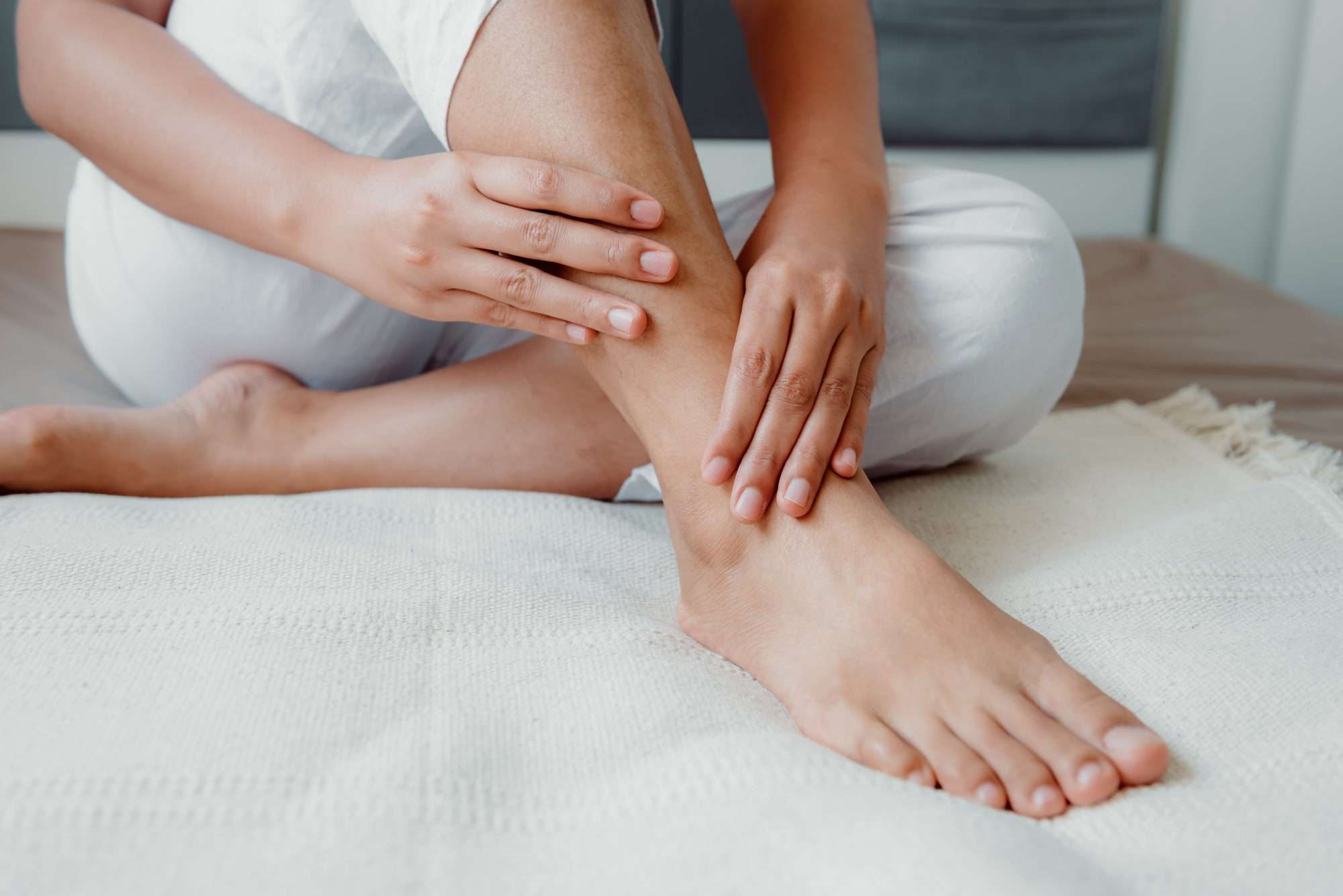Natural Relief: Effective Home Remedies for Swollen Feet

Sure, here’s the introduction paragraph for the blog post:
Are you looking for natural relief from swollen feet? Whether it’s caused by long hours of standing, pregnancy, or an underlying health condition, finding effective home remedies can make a significant difference. From soothing Epsom salt soaks to the benefits of dandelion tea, there are various ways to alleviate the discomfort and reduce swelling without relying on medication. In this article, we’ll explore the causes of swollen feet, effective home remedies, and preventive measures to help you find relief and improve your overall well-being. Let’s dive into the world of natural remedies for swollen feet.
Causes of Swollen Feet
Swollen feet, also known as edema, can be caused by various factors and conditions. It’s essential to understand the causes to effectively address this issue. Here are some common reasons for swollen feet:
-
Prolonged Standing or Sitting: Remaining in one position for an extended period can lead to poor circulation and fluid retention, resulting in swollen feet.
-
Injury or Trauma: Any injury to the foot or ankle, such as a sprain or fracture, can cause swelling.
-
Pregnancy: During pregnancy, the body retains more fluid, leading to swelling in the feet and ankles.
-
Medical Conditions: Certain medical conditions like venous insufficiency, kidney disease, heart failure, and lymphedema can contribute to swollen feet.
-
Medication Side Effects: Some medications, such as those for high blood pressure or nonsteroidal anti-inflammatory drugs (NSAIDs), may cause fluid retention and swelling.
Understanding the underlying cause of swollen feet is crucial in determining the most suitable home remedies and preventive measures. By addressing the root cause, you can effectively alleviate and prevent swelling in the feet.
Home Remedies for Swollen Feet
When looking for natural relief from swollen feet, there are several home remedies that can help alleviate the discomfort. Here are some effective home remedies for swollen feet:
-
Epsom salt soak: Soaking your feet in warm water mixed with Epsom salt can help reduce swelling and provide relaxation. The magnesium in Epsom salt has natural anti-inflammatory properties that can help soothe sore muscles and decrease swelling.
-
Massage with essential oils: Gently massaging your feet with anti-inflammatory essential oils, such as lavender or chamomile oil, can promote circulation and reduce fluid retention in the feet.
-
Contrast hydrotherapy: This involves alternating between hot and cold water soaks for the feet. The heat helps to dilate blood vessels, while the cold causes vasoconstriction, aiding in reducing swelling and promoting circulation.
-
Stay hydrated and elevate your feet: Drinking an adequate amount of water helps to flush out excess fluids from the body, reducing swelling. Elevating your feet above heart level can also assist in draining excess fluid and reducing swelling.
-
Dandelion tea: Dandelion has diuretic properties that can help the body eliminate excess fluid, reducing swelling in the feet.
By incorporating these home remedies for swollen feet into your routine, you can discover natural relief from discomfort and promote overall foot health.
Epsom Salt Soak
If you’re looking for natural relief from swollen feet, an Epsom salt soak can be a game-changer. Here’s how it works and how you can benefit from it:
-
How it works: Epsom salt is rich in magnesium, which can help reduce swelling and ease pain. When you soak your feet in warm water mixed with Epsom salt, the magnesium gets absorbed through your skin, promoting vasodilation and reducing inflammation.
-
How to do it:
- Fill a basin with warm water.
- Add 1-2 cups of Epsom salt and stir until it dissolves.
- Soak your feet for 15-20 minutes.
- Gently massage your feet during the soak for added relaxation.
-
Frequency: You can do this 2-3 times a week, or as needed for relief.
-
Benefits:
- Reduces swelling and inflammation
- Relieves soreness and discomfort
- Promotes relaxation and improves circulation
Using Epsom salt as a home remedy for swollen feet is a simple yet effective way to find relief without relying on medications or invasive treatments. Give it a try and experience the soothing effects for yourself.
Massage with Essential Oils
When it comes to home remedies for swollen feet, massage with essential oils can offer soothing relief. Essential oils such as peppermint, eucalyptus, or lavender have anti-inflammatory properties that can help reduce swelling and discomfort. Here’s how you can benefit from using essential oils for a relaxing massage:
- Preparation: Mix a few drops of your chosen essential oil with a carrier oil like coconut or almond oil.
- Application: Gently massage the oil mixture onto your swollen feet, focusing on the affected areas.
- Benefits: The massage action helps improve blood circulation, while the anti-inflammatory properties of the essential oils work to reduce swelling and provide relief.
Comparison of Essential Oils:
| Essential Oil | Benefits |
|---|---|
| Peppermint | Cooling effect, reduces inflammation and discomfort |
| Eucalyptus | Anti-inflammatory properties, promotes relaxation |
| Lavender | Soothes the skin, eases swelling and enhances relaxation |
Including a regular massage with essential oils as part of your home remedies for swollen feet routine can aid in reducing discomfort and promoting overall relaxation and wellness.
Contrast Hydrotherapy
If you are looking for effective home remedies for swollen feet, contrast hydrotherapy is a simple and soothing option to consider. This therapy involves alternating hot and cold water treatments to help reduce swelling and improve circulation in the feet.
How to Do Contrast Hydrotherapy:
- Fill two basins or tubs with water, one with comfortably hot water and the other with cold water.
- Submerge your feet in the hot water for 3-4 minutes, then switch to the cold water for 1-2 minutes.
- Repeat this process for a total of 15-20 minutes, ending with the cold water.
Benefits of Contrast Hydrotherapy:
- Helps to reduce inflammation and swelling in the feet.
- Improves circulation and helps relieve discomfort.
- Stimulates the lymphatic system, aiding in the removal of excess fluid from the feet.
Precautions:
- Avoid contrast hydrotherapy if you have open wounds or any skin infections on your feet.
- If you have any medical conditions such as diabetes or neuropathy, consult a healthcare professional before trying this remedy.
Remember, while contrast hydrotherapy can provide relief for swollen feet, it’s essential to address the underlying causes and consult a healthcare provider for chronic or severe swelling.
Stay Hydrated and Elevate Your Feet
One of the simplest yet most effective home remedies for swollen feet is to stay hydrated and elevate your feet. Here’s how these two practices can provide natural relief for this uncomfortable condition.
Staying Hydrated
Staying properly hydrated helps to flush out excess fluids and reduce swelling. Make sure to drink an adequate amount of water throughout the day to support healthy circulation and prevent water retention, which can contribute to swollen feet.
Elevating Your Feet
Elevating your feet can help reduce swelling by allowing excess fluid to drain away from the feet and back toward the heart. When sitting or lying down, elevate your feet above heart level for 15-20 minutes several times a day to promote better circulation and decrease swelling.
By incorporating these simple yet effective practices into your daily routine, you can alleviate discomfort and reduce swelling in your feet naturally.
Remember: Home remedies for swollen feet can be simple and effective. Staying hydrated and elevating your feet are easy habits to incorporate into your daily routine to find relief from swollen feet.
Dandelion Tea: A Natural Remedy for Swollen Feet
If you’re looking for a natural remedy to alleviate swollen feet, dandelion tea can be a great option. This herbal tea has been used for centuries to reduce swelling and water retention in the body. Here’s why dandelion tea can be effective for dealing with swollen feet:
-
Diuretic Properties: Dandelion tea acts as a natural diuretic, helping the body to flush out excess water and reduce swelling in the feet.
-
Rich in Potassium: It is also rich in potassium, which can help balance the body’s sodium levels and reduce water retention.
-
Anti-Inflammatory Effects: The tea contains anti-inflammatory compounds that can help relieve pain and discomfort associated with swollen feet.
-
How to Prepare: To make dandelion tea, steep one teaspoon of dried dandelion leaves in hot water for 5-10 minutes. You can drink this tea up to three times a day.
-
Caution: However, it’s important to consult a healthcare professional before using dandelion tea, especially if you are on medications or have any existing health conditions.
Incorporating dandelion tea into your routine, along with other home remedies for swollen feet, can contribute to natural relief and improve your overall comfort.
Preventive Measures for Swollen Feet
When it comes to managing swollen feet, prevention is often the best approach. By taking proactive measures, you can minimize the risk of experiencing discomfort and swelling. Here are some effective preventive measures for swollen feet:
-
Maintain a healthy weight: Excess weight puts more pressure on your feet, leading to swelling. By maintaining a healthy weight through a balanced diet and regular exercise, you can alleviate this pressure.
-
Regular exercise: Engaging in physical activity promotes circulation and reduces the likelihood of fluid retention, which can contribute to swollen feet.
-
Wear comfortable shoes: Opt for footwear that provides adequate support and cushioning. Ill-fitting or high-heeled shoes can impede proper circulation and contribute to foot swelling.
-
Limit sodium intake: Consuming excessive amounts of sodium can lead to fluid retention, exacerbating swelling. Be mindful of your salt intake to prevent this.
-
Elevate your feet: Periodically elevating your feet can help reduce swelling by allowing excess fluid to drain away.
By incorporating these preventive measures into your daily routine, you can effectively manage and reduce the occurrence of swollen feet, promoting overall comfort and well-being.
Remember, consistency is key in maintaining healthy circulation and minimizing the risk of swollen feet.
These measures can be especially beneficial for individuals prone to swelling or those seeking to proactively address the issue.





